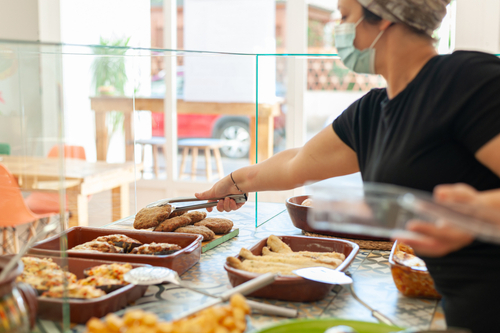By Kate Fintel
 In an article by Robin Hassler Thompson, JD, MA, Executive Director of the Survive and Thrive Advocacy Center, which provides community education programs and direct services to sex and labor trafficking survivors in the Tallahassee area, Ms. Thompson quotes an anonymous trafficking survivor: “Before COVID-19, we were ‘low-wage, low-skilled’ workers, but now, we are ‘essential.’” But with the changed designation to “essential,” American low-wage workers have not seen any increased protection, despite the emphasis on the importance of their contributions by government and media figures alike. To the contrary, their working conditions, often in food processing plants, hotels, restaurants, construction sites, farms, or nursing homes, have gotten more unreasonable and even less safe over the course of the pandemic. Specifically, these workers have faced longer hours, lower wages, and more job insecurity – with such outcomes being more pronounced for those who raise concerns about working conditions frequently exacerbated as a result of shortages of, or an outright lack of access to, protective gear and non-enforcement of social distancing protocols during the pandemic.
In an article by Robin Hassler Thompson, JD, MA, Executive Director of the Survive and Thrive Advocacy Center, which provides community education programs and direct services to sex and labor trafficking survivors in the Tallahassee area, Ms. Thompson quotes an anonymous trafficking survivor: “Before COVID-19, we were ‘low-wage, low-skilled’ workers, but now, we are ‘essential.’” But with the changed designation to “essential,” American low-wage workers have not seen any increased protection, despite the emphasis on the importance of their contributions by government and media figures alike. To the contrary, their working conditions, often in food processing plants, hotels, restaurants, construction sites, farms, or nursing homes, have gotten more unreasonable and even less safe over the course of the pandemic. Specifically, these workers have faced longer hours, lower wages, and more job insecurity – with such outcomes being more pronounced for those who raise concerns about working conditions frequently exacerbated as a result of shortages of, or an outright lack of access to, protective gear and non-enforcement of social distancing protocols during the pandemic.
Though we can’t quantify just how much worse the problems of labor exploitation and trafficking have gotten in America since the pandemic began given the significant invisibility of these practices, we know that the situation has deteriorated. From March 2020 to April 2020 (when the shelter-in-place orders first went into effect), the number of cases handled by the U.S. National Trafficking Hotline increased by more than 40%. And since then, things have continued to escalate: it is estimated that an additional eight million Americans have been thrust into poverty since May 2020, and with stimulus payments to individuals and families behind us, this number may continue to increase significantly. Because poverty’s effects, most notably housing insecurity, bring with them great vulnerability to labor exploitation and trafficking, there are now even more Americans at risk.
And for those that were already victim to these practices, things are looking even grimmer; unscrupulous employers and traffickers have turned to even more extreme measures to compensate for their COVID-19 recession-related losses. The conditions in the healthcare, agricultural, and food services industries, for example, are more dangerous than ever.
Though it has always been the case that labor exploitation, abuse, and trafficking increase during crises, the COVID-19 pandemic has brought with it a unique feature that intensifies these problems. The employers and traffickers responsible for these practices have continued – and even intensified – their perverse operating methods; in calling victimized workers “essential” on account of the services they provide and the goods they produce, we have furnished employers and traffickers with justifications and greater incentives, respectively, to take advantage of workers through profoundly unethical practices. The only requirement? That the essential work and goods their victims provide get delivered.
The bottom line is this: labor trafficking isn’t just a criminal justice issue; it’s a workers’ rights and an economic issue. Until we stop overlooking the mistreatment of people who ensure access to the goods and services we need to live our lives and enjoy a strong economy, can we actually call it a recovery?
